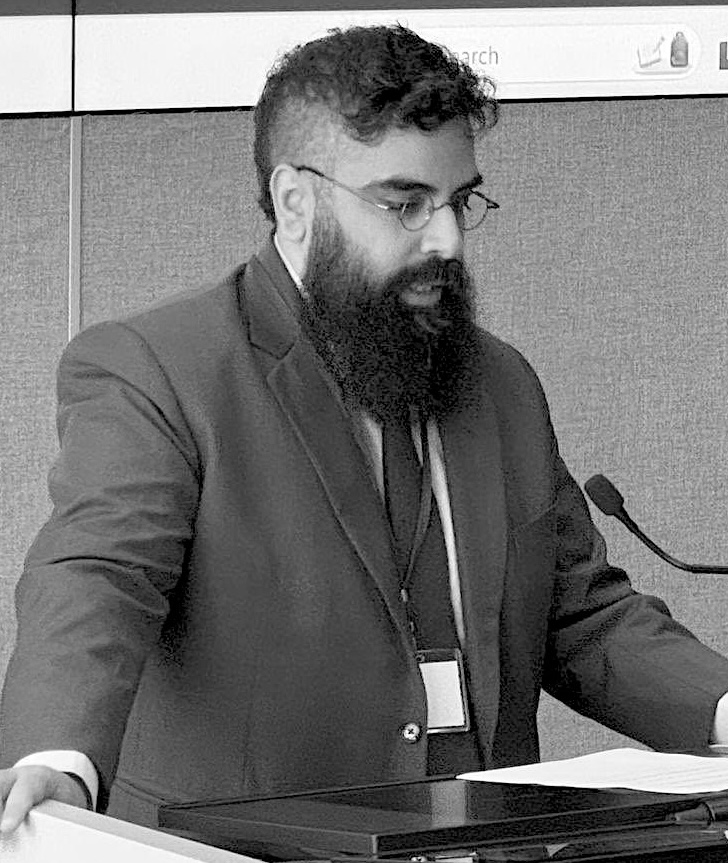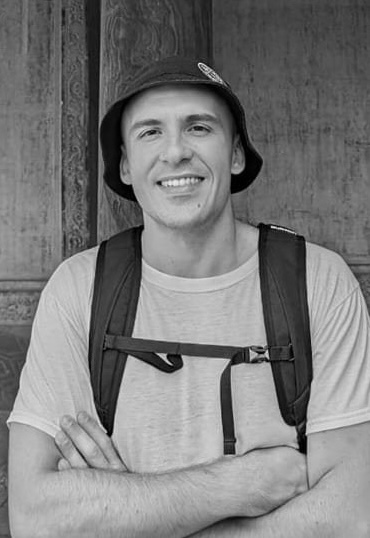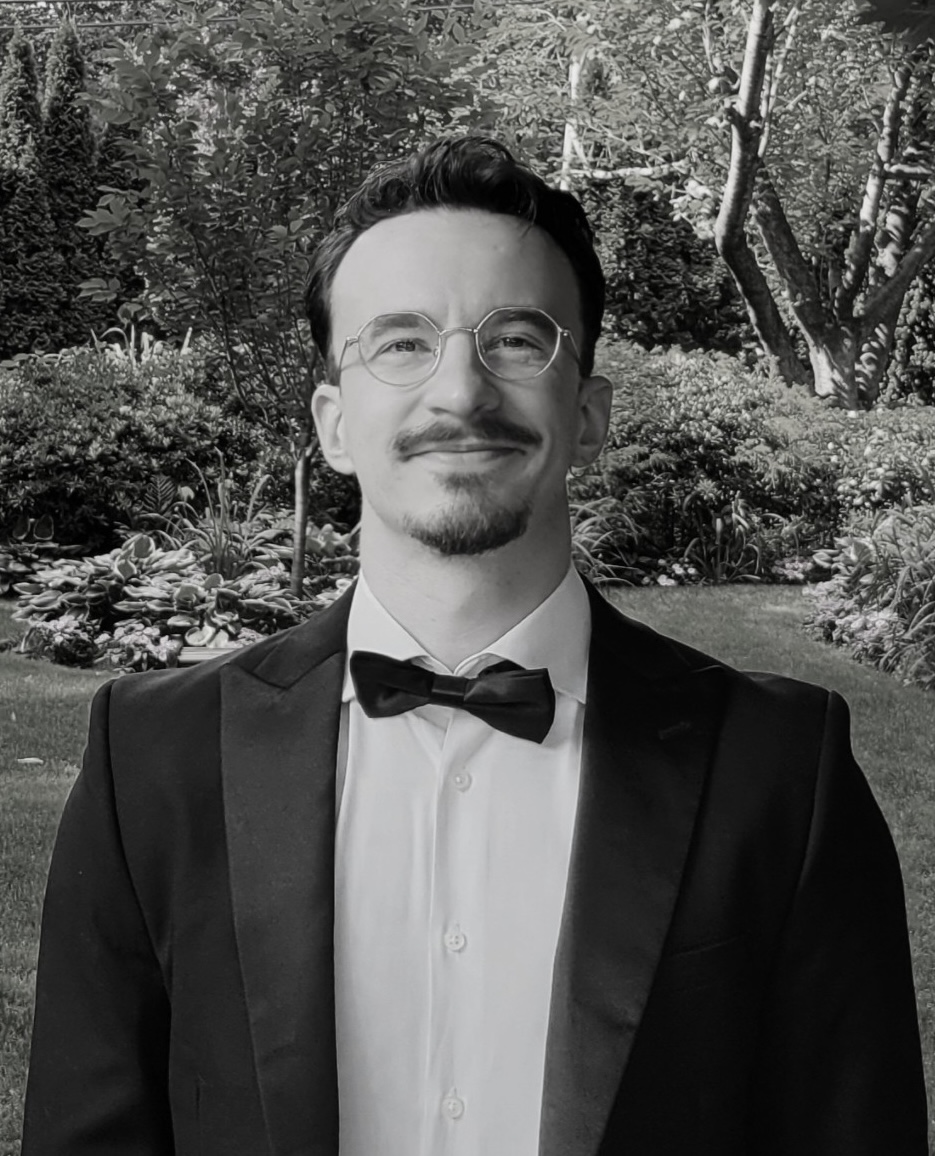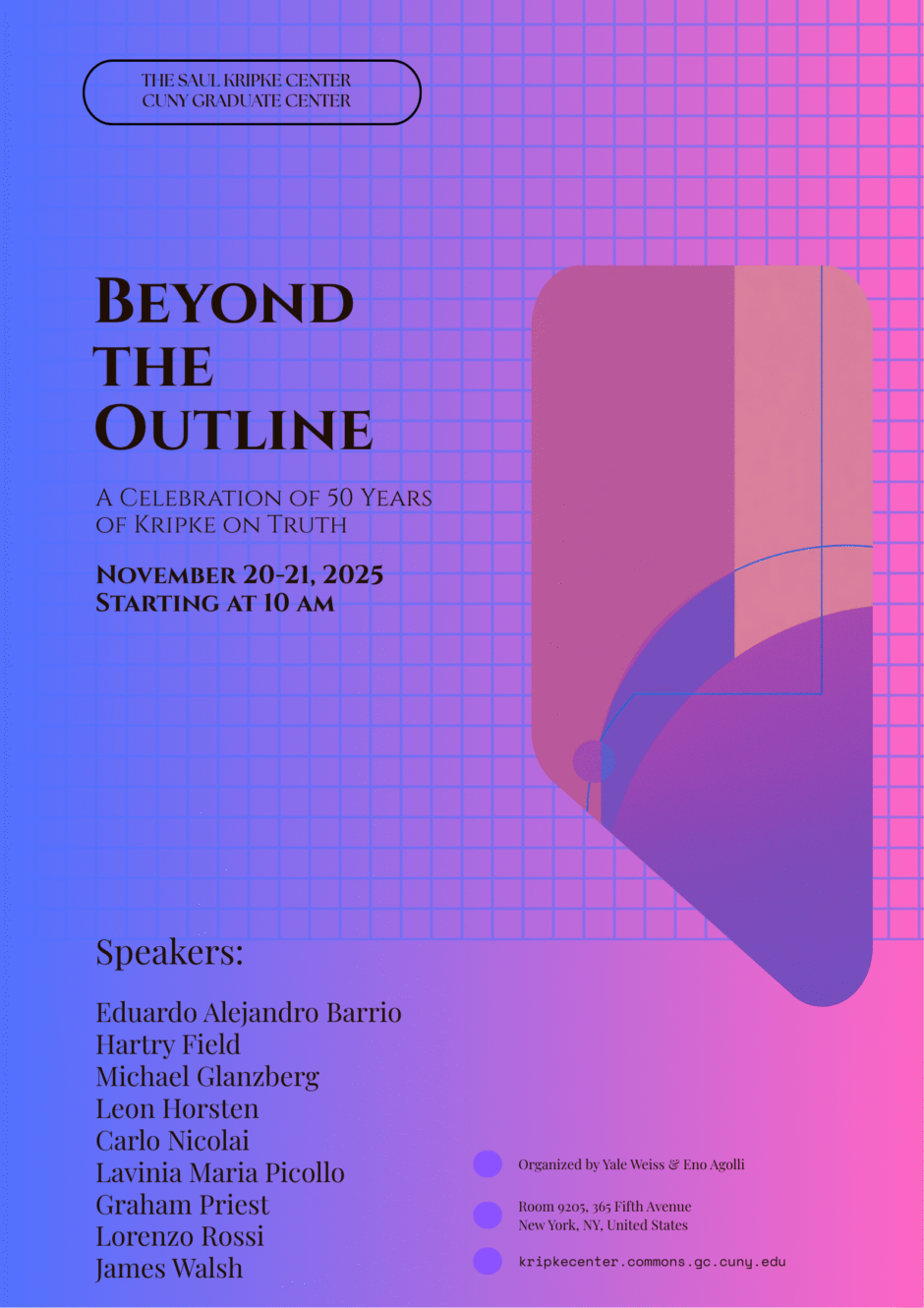Following the great Beyond the Outline conference held at the CUNY Graduate Center this past November, the Saul Kripke Center is pleased to announce that a proceedings for the conference is in contract with Springer. The volume, entitled Beyond the Outline: A Celebration of Fifty Years of Kripke on Truth, is being edited by Yale Weiss and Eno Agolli.
Author: Yale Weiss
New Visiting Scholar: Rashed Ahmad

Rashed Ahmad (PhD, University of Connecticut), Assistant Professor in the Philosophy department at Kuwait University, joins the Saul Kripke Center as a Visiting Research Scholar for 2026. His research mainly concerns substructural logics (primarily Refllexive-free and Transitive-free logics) and issues of internalization, including semantic and soritical paradoxes and ω-inconsistency.
New Visiting Scholar: Giuliano Rosella

Giuliano Rosella (PhD, LLC-University of Turin), post-doctoral researcher at the Center for Logic, Language and Cognition, in the Department of Philosophy – University of Turin, joins the Saul Kripke Center as a Visiting Research Scholar for Fall 2025. His research mainly concerns the logic and probability of conditionals, algebraic logic, and formal epistemology.
Newsletter (Fall 2025)
Read our Fall 2025 newsletter here.
Eno Agolli named new Assistant Director of the Saul Kripke Center

Eno Agolli joins the Saul Kripke Center as its Assistant Director in Fall 2025. He works on philosophy of language (formal semantics) and logic, with secondary interests in metaphysics, ethics, and the history of philosophy.
New Visiting Scholar: Francesco Pupa

Francesco Pupa (PhD, The Graduate Center, CUNY), Professor of Philosophy in the Humanities, Fine and Performing Arts Department at Nassau Community College, joins the Saul Kripke Center as a Visiting Research Scholar for Fall 2025. His research mainly concerns issues within the philosophy of language and linguistics.
Summer Logic Double Feature
The Saul Kripke Center is pleased to announce that Nils Kürbis (Bochum) and Heinrich Wansing (Bochum) will deliver talks on Wednesday, June 11th, 2025, at the CUNY Graduate Center (Room 9207). The talks are free and open to all.
Title (1): A Theory of Definite Descriptions for Modal Logic
Time (1): 2:00 to 3:00 pm
Speaker (1): Nils Kürbis (Bochum)
Abstract (1): I’ll present a theory of definite descriptions in positive free logic, where definite descriptions ‘the F’ are formalised as in the context of complete sentences ‘The F is G’ by a binary quantifier as Ix(F, G). Formalised in natural deduction or sequent calculus, the theory satisfies certain proof-theoretic requirements demanded by proof theoretic semantics. Thus the meaning of I can be taken to be defined by its rules of inference. Positive free logic has been fruitfully applied in quantified modal logic. So I’ll consider what happens when modal operators are added. It turns out that the semantic clauses for Ix(F, G) are exactly those of Fitting and Mendelsohn (First Order Modal Logic, 2nd edition, Springer 2023), except that they formalise ‘The F is G’ by the iota operator for ‘the’ and the lambda for predicate abstraction to mark scope. I’ll end the talk with a brief comparison between the two systems.
***
Title (2): Solving a New Paradox of Deontic Logic (and a dozen other paradoxes) with RNmatrices for MC-based Modal Logics
Time (2): 3:00 to 4:00 pm
Speaker (2): Heinrich Wansing (Bochum) [joint work with Daniel Skurt (Bochum)]
Abstract (2): In this paper, we present RNmatrices (restricted non-deterministc matrices) for normal and non-normal modal expansions of the material connexive logic MC. We introduce and solve a paradox of deontic logic that to the best of our knowledge has not yet been been discussed in the literature and that justifies the use of a connexive, and actually hyperconnexive, non-modal base logic.
Beyond the Outline: A Celebration of Fifty Years of Kripke on Truth

To mark the 50th anniversary of the first publication of Saul Kripke’s influential paper, “Outline of a Theory of Truth”, the Saul Kripke Center will host a major international conference on theories of truth at the CUNY Graduate Center in New York City on November 20 and 21, 2025. The conference will be organized as an exclusively in-person event. Attendance is open, without registration or cost, to anyone who is interested (Building Entry Policy). The conference program is available here.
Job Opportunity
The Saul Kripke Center is hiring for the vacant post of Assistant Director. Details here.
New Visiting Scholar: Ralph Gregory Taylor
 Ralph Gregory Taylor (PhD, Columbia University) joins the Saul Kripke Center as a Visiting Research Scholar through March 31, 2026. He works on logic and its history.
Ralph Gregory Taylor (PhD, Columbia University) joins the Saul Kripke Center as a Visiting Research Scholar through March 31, 2026. He works on logic and its history.



